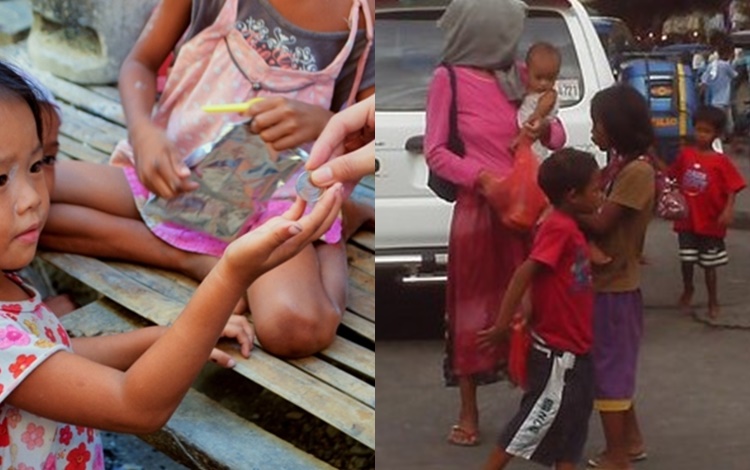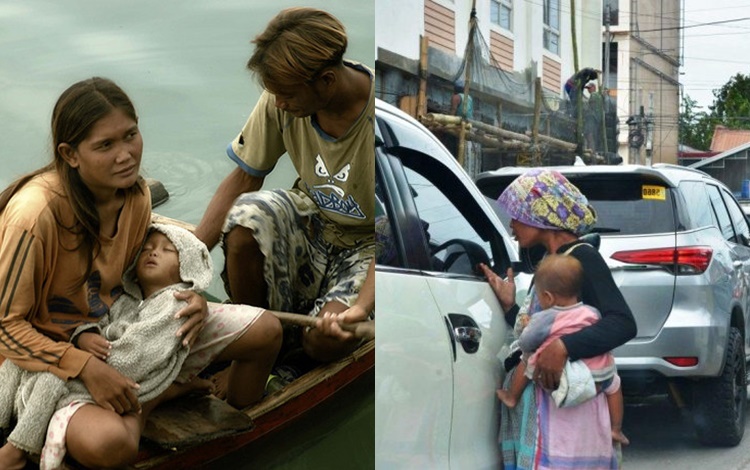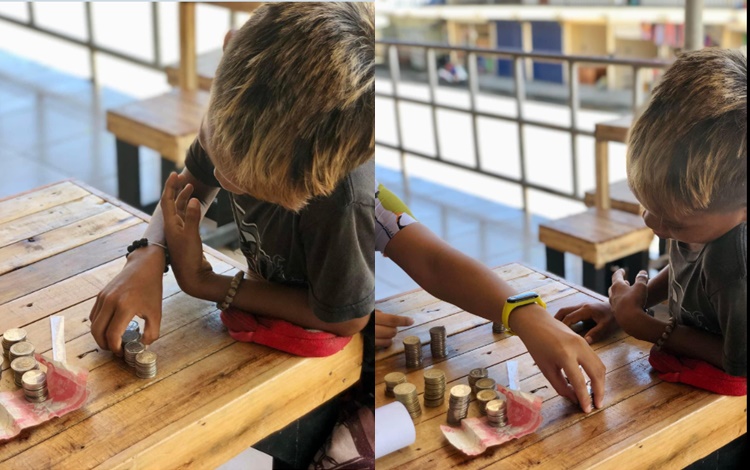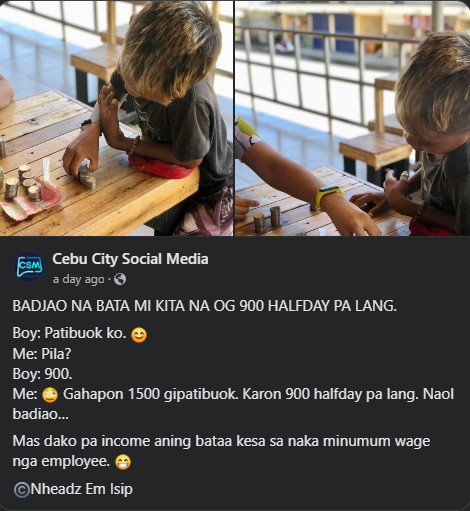In our streets, we often encounter the Badjao people, who are seen asking for alms as part of their culture and a source of income. This has become a daily routine for them, starting from their childhood to adulthood. In areas near festivals or special occasions like Christmas, we frequently spot them on the streets, seeking alms.

However, there are unavoidable instances where they end up on the roads, putting their lives in danger, as well as the motorists who may accidentally hit them. They often leave behind litter in the places where they stay.
But recently, a surprising revelation went viral on social media. A netizen shared photos on Facebook of an encounter with a young Badjao. He asked the young Badjao how much they earn in a day from begging. The young Badjao responded that they can make up to P900 a day, with some days yielding even more, exceeding P1,000.

This daily income of P900 is higher than what a minimum wage earner in Metro Manila, as per the Department of Labor’s records, typically earns, which ranges from P573 to P610 per day. In the provinces, the earnings are even lower compared to Metro Manila.
Faced with this reality, many of our fellow citizens were surprised and puzzled. The fact that Badjao individuals can earn more through begging than an 8-hour workday of a minimum wage earner is quite perplexing. Is it because of their skill in begging or do they receive more donations?

This revelation can be seen as an insult to a minimum wage earner who toils for 8 hours a day compared to a Badjao who begs on the streets. Some netizens humorously commented that it seems like they are having second thoughts about switching professions to begging, given this revelation posted on Facebook.
It’s attributed to their culture, while some argue that Badjao people are considered lazy in seeking a livelihood, making them prefer begging to overwork. There have been instances where a Badjao individual reportedly deposited a significant amount from their earnings.

With changing times and the advent of new technology, we cannot predict whether the Badjao culture will evolve to lead a more conventional life and not rely on begging for income. Source

